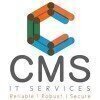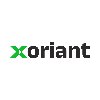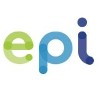Filter interviews by
SFO Technologies Interview Questions and Answers
18 Interview questions
Excel is a powerful spreadsheet application used for data analysis, visualization, and complex calculations.
Data Organization: Excel allows users to organize data in rows and columns, making it easy to manage and analyze large datasets.
Formulas and Functions: Users can perform calculations using built-in functions like SUM, AVERAGE, and VLOOKUP to automate data processing.
Charts and Graphs: Excel provides tools to...
The task involves translating a given English paragraph into one's own words.
Understand the main idea of the paragraph before translating.
Use simpler language to convey the same message.
Maintain the original meaning while changing the structure.
Example: If the paragraph says 'The cat sat on the mat,' you could say 'The mat had a cat sitting on it.'
No, I do not have any back papers.
I have successfully completed all my exams without any backlogs.
I have a clean academic record with no pending papers.
I am fully qualified for the position without any academic hindrances.
8D is a problem-solving methodology used to identify, correct, and prevent recurring problems.
8D stands for 8 disciplines, each representing a step in the problem-solving process
Example: Step 1 - Form a team to address the problem
Example: Step 2 - Define the problem and establish a containment action
Example: Step 3 - Identify the root cause of the problem
Example: Step 4 - Develop and verify permanent corrective ac...
The 7 QC tools are basic tools used for quality control in manufacturing processes.
Check sheet: Used to collect and analyze data, such as defects in a product.
Control chart: Monitors process variation over time, helping to identify trends and abnormalities.
Histogram: Displays data distribution, showing the frequency of occurrence of a particular quality characteristic.
Pareto chart: Helps prioritize issues by showi...
194Q TDS is a provision under the Income Tax Act where TDS is deducted on payment made to resident contractors and professionals.
194Q TDS applies to individuals and HUFs who are not required to get their accounts audited.
TDS is deducted at the rate of 1% on payment exceeding Rs. 50 lakhs in a financial year.
The deductor is required to obtain the Tax Deduction and Collection Account Number (TAN) and file TDS return...
Yes, I have a strong foundation in electronics knowledge.
I have a degree in Electronics Engineering which covered the basics of electronics.
I have hands-on experience with circuit design, troubleshooting, and repair.
I am familiar with components like resistors, capacitors, transistors, and integrated circuits.
I have worked on projects involving digital and analog electronics.
I understand concepts like Ohm's Law, K...
I have worked on a variety of projects including software development, system integration, and process improvement.
Led a team in developing a new software application for tracking inventory
Implemented system integration solutions to streamline communication between different departments
Identified inefficiencies in current processes and proposed improvements to increase efficiency
Having a suitable educational background is important for effective performance in specialized roles like Test Engineering.
Relevant education provides foundational knowledge, e.g., a degree in Computer Science helps in understanding software development.
Specialized training, such as certifications in testing methodologies (e.g., ISTQB), enhances skills and credibility.
Practical experience, like internships or proj...
Quality Assurance focuses on preventing defects while Quality Control focuses on identifying and correcting defects.
Quality Assurance is a proactive process that involves planning, designing, and implementing processes to prevent defects from occurring.
Quality Control is a reactive process that involves identifying defects and taking corrective action to eliminate them.
Quality Assurance is focused on the entire pr...
SFO Technologies Interview Experiences
40 interviews found
I applied via Referral
(2 Questions)
- Q1. You know basics electronic
- Q2. What is your main core subjects
(2 Questions)
- Q1. Why you are choosing this job
- Ans.
I am drawn to this role as a Hardware Testing Engineer to leverage my skills in ensuring product reliability and performance.
Passion for Quality: I have always been passionate about ensuring that products meet high-quality standards, as seen in my previous role where I improved testing protocols, resulting in a 20% reduction in defects.
Technical Expertise: My background in electronics and testing methodologies equips m...
- Q2. How much salary expected in your side
Interview Preparation Tips
I applied via LinkedIn and was interviewed in Aug 2024. There were 2 interview rounds.
(2 Questions)
- Q1. Simple qst about previous expreiences
- Q2. Why do wanna join our company
- Ans.
I am impressed by your company's innovative projects and collaborative work culture.
I admire the cutting-edge technology used in your projects
I am excited about the opportunity to work with a talented team
I value the emphasis on collaboration and continuous learning at your company
Take home, a basic crud application
Interview Preparation Tips
(2 Questions)
- Q1. Previous company
- Ans.
I worked at XYZ Company as a Production Manager for 5 years.
Managed a team of 20 production staff members
Implemented new production processes to increase efficiency
Collaborated with other departments to ensure timely delivery of products
- Q2. Technical on experience and trade course
I applied via Campus Placement
(2 Questions)
- Q1. DIPLOMA OR ITI , which one do you have
- Q2. DO YOU HAVE ANY BACK PAPERS ?
- Ans.
No, I do not have any back papers.
I have successfully completed all my exams without any backlogs.
I have a clean academic record with no pending papers.
I am fully qualified for the position without any academic hindrances.
Interview Preparation Tips
But salary is too low
(2 Questions)
- Q1. Production & 5S activity
- Q2. Line balancing
Interview Preparation Tips
I applied via Referral and was interviewed in Feb 2024. There was 1 interview round.
(2 Questions)
- Q1. Explain 8D with example.
- Ans.
8D is a problem-solving methodology used to identify, correct, and prevent recurring problems.
8D stands for 8 disciplines, each representing a step in the problem-solving process
Example: Step 1 - Form a team to address the problem
Example: Step 2 - Define the problem and establish a containment action
Example: Step 3 - Identify the root cause of the problem
Example: Step 4 - Develop and verify permanent corrective actions
...
- Q2. Explain 7 QC tools with example
- Ans.
The 7 QC tools are basic tools used for quality control in manufacturing processes.
Check sheet: Used to collect and analyze data, such as defects in a product.
Control chart: Monitors process variation over time, helping to identify trends and abnormalities.
Histogram: Displays data distribution, showing the frequency of occurrence of a particular quality characteristic.
Pareto chart: Helps prioritize issues by showing th...
I applied via LinkedIn and was interviewed in Apr 2024. There were 2 interview rounds.
(1 Question)
- Q1. About previous jobs, family, expected salary
(1 Question)
- Q1. About the product question for evaluating your strength, leadership and technical knowldge
I appeared for an interview before May 2024, where I was asked the following questions.
- Q1. What is your experience with quality tools such as the 7 Quality Control (QC) tools and the 8D problem-solving method, as well as your experience in handling customer interactions?
- Ans.
Experienced in 7 QC tools and 8D methodology, with strong customer interaction skills in quality assurance.
Proficient in using the 7 QC tools: Fishbone diagrams for root cause analysis, control charts for monitoring process stability.
Implemented 8D problem-solving in a project to address recurring defects, leading to a 30% reduction in customer complaints.
Conducted training sessions on quality tools for cross-functiona...
- Q2. What has been your experience with your previous company?
- Ans.
I led quality assurance initiatives, enhancing product reliability and compliance in a fast-paced tech environment.
Implemented automated testing frameworks, reducing testing time by 30%.
Collaborated with cross-functional teams to identify and resolve quality issues early in the development cycle.
Conducted root cause analysis on defects, leading to a 25% decrease in recurring issues.
Developed and maintained quality metr...
- Q3. How did you approach the transition from the mechanical automotive industry to the electrical wiring harness division?
- Ans.
I leveraged my mechanical expertise to adapt to the electrical wiring harness division, focusing on quality assurance principles.
Conducted thorough research on electrical wiring harnesses to understand their design and functionality.
Utilized my mechanical background to identify potential quality issues in the wiring harness assembly process.
Collaborated with cross-functional teams to implement quality control measures ...
- Q4. How flexible are you concerning working in shifts?
- Ans.
I am highly flexible with shift work, understanding its importance for project success and team collaboration.
I have previously worked in roles requiring rotating shifts, which helped me adapt quickly to different schedules.
In my last position, I volunteered for night shifts during a critical project phase to ensure timely delivery.
I believe that flexibility in shifts can enhance team dynamics and improve overall produ...
- Q5. What are the quality KPIs you are familiar with, and how have you contributed to their maintain?
- Ans.
I am familiar with various quality KPIs and have actively contributed to their maintenance through strategic initiatives and process improvements.
Defect Density: I tracked defect density by analyzing the number of defects per lines of code, leading to a 20% reduction in defects over two releases.
Test Coverage: I ensured test coverage metrics were above 90% by implementing automated testing frameworks, which improved ov...
I applied via Company Website and was interviewed before Sep 2023. There were 2 interview rounds.
(5 Questions)
- Q1. Diploma Logistics
- Q2. Diploma Logistics Data entry operator
- Q3. Supply chain management coordinating team
- Q4. Supply chain management
- Q5. Warehouse assistant supervisor
WORK EXPERIENCE
NEST GROUP (SFO TECHNOLOGIES PVT LTD), Kakkanad
Warehouse Assistant Supervisor
Improved delivery plans with strong scheduling knowledge, organizational skills, and route development expertise.
Monitored employee performance and offered mentoring and leadership to improve any deficiencies
Assigned tasks to team members to complete within designated time frames
Increased accuracy in order fulfillment with thorough quality control checks before shipping orders
Completed daily operations on time and maintained high standards of accuracy
Managed a team of warehouse workers for optimal scheduling, task delegation, and overall productivity
Trained new team members on proper and safe use of tools and equipment
Handled employee concerns promptly and effectively while
maintaining open lines of communication among team m e2m02b4e r-s 20:
Amazon warehouse blr4
Warehouse Executive
Efficiently managed data entry tasks, ensuring accuracy and timely completion of various administrative duties.
Maintained organized records and databases, facilitating smooth data retrieval and analysis processes.
Collaborated with team members to streamline workflow processes, contributing to enhanced productivity and customer satisfaction
Interview Preparation Tips
(2 Questions)
- Q1. Engineering basics -- basically on the project
- Q2. Quality aspects
Top trending discussions






SFO Technologies Interview FAQs
The duration of SFO Technologies interview process can vary, but typically it takes about less than 2 weeks to complete.
Tell us how to improve this page.
SFO Technologies Interviews By Designations
- SFO Technologies Quality Engineer Interview Questions
- SFO Technologies Test Engineer Interview Questions
- SFO Technologies Quality Analyst Interview Questions
- SFO Technologies Engineer Interview Questions
- SFO Technologies Senior Engineer Interview Questions
- SFO Technologies Software Engineer Interview Questions
- SFO Technologies Assistant Manager Interview Questions
- SFO Technologies System Engineer Interview Questions
- Show more
Interview Questions for Popular Designations
- Senior Executive Interview Questions
- Analyst Interview Questions
- Software Developer Interview Questions
- Consultant Interview Questions
- Associate Software Engineer Interview Questions
- Graduate Engineer Trainee (Get) Interview Questions
- System Engineer Interview Questions
- Senior Software Engineer Interview Questions
- Show more
Overall Interview Experience Rating
based on 39 interview experiences
Difficulty level
Duration
Interview Questions from Similar Companies
SFO Technologies Reviews and Ratings
based on 790 reviews
Rating in categories
|
Senior Engineer
126
salaries
| ₹3.5 L/yr - ₹10.6 L/yr |
|
Quality Engineer
117
salaries
| ₹1.9 L/yr - ₹5.5 L/yr |
|
Trainee
114
salaries
| ₹0.8 L/yr - ₹3.5 L/yr |
|
Engineer
113
salaries
| ₹2.4 L/yr - ₹6 L/yr |
|
Assistant Manager
98
salaries
| ₹5.8 L/yr - ₹13 L/yr |

ITC Infotech

CMS IT Services

KocharTech

Xoriant
- Home >
- Interviews >
- SFO Technologies Interview Questions















